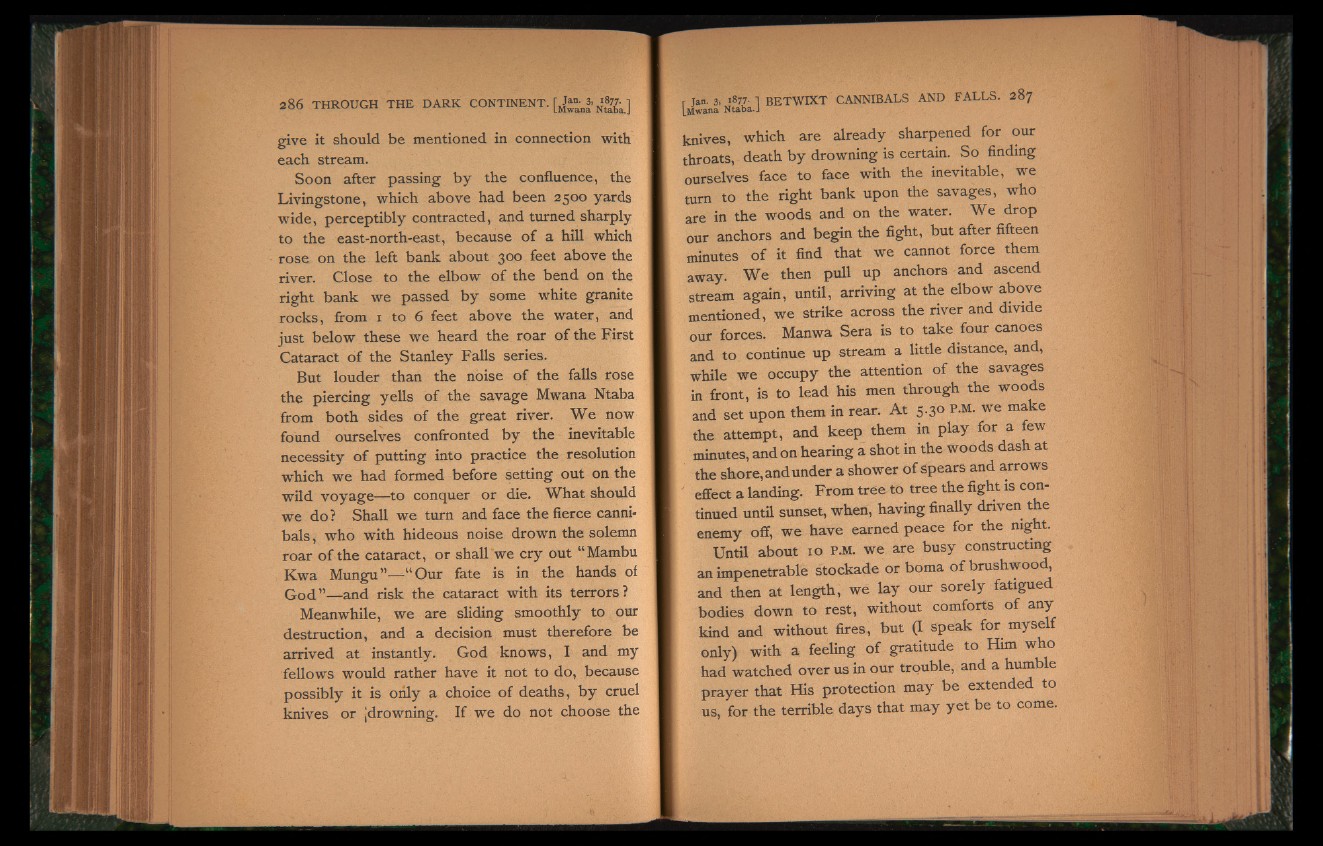
give it should be mentioned in connection with
each stream.
Soon after passing by the confluence, the
Livingstone, which above had been 2500 yards
wide, perceptibly contracted, and turned sharply
to the east-north-east, because of a hill which
rose on the left bank about 300 feet above the
river. Close to the elbow of the bend on the
right bank we passed by some white granite
rocks, from 1 to 6 feet above the water, and
just below these we heard the roar of the First
Cataract of the Stanley Falls series.
But louder than the noise of the falls rose
the piercing yells of the savage Mwana Ntaba
from both sides of the great river. We now
found ourselves confronted by the inevitable
necessity of putting into practice the resolution
which we had formed before setting out on the
wild voyage— to conquer or die. Wkat should
we do? Shall we turn and face the fierce cannibals
, who with hideous noise drown the solemn
roar of the cataract, or shall we cry out “Mambu
Kwa Mungu”—-“ Our fate is in the hands of
God”— and risk the cataract with its terrors?
Meanwhile, we are sliding smoothly to our
destruction, and a decision must therefore be
arrived at instantly. God knows, I and my
fellows would rather have it not to do, because
possibly it is only a choice of deaths, by cruel
knives or ¡drowning. If we do not choose the
knives, which are already sharpened for our
throats, death by drowning is certain. So finding
ourselves face to face with the inevitable, we
turn to the right bank upon the savages, who
are in the woods and on the water. We drop
our anchors and begin the fight, but after fifteen
minutes of it find that we cannot force them
away. We then pull up anchors and ascend
stream again, until, arriving at the elbow above
mentioned, we strike across the river and divide
our forces. Manwa Sera is to take four canoes
and to continue up stream a little distance, and,
while we occupy the attention of the savages
in front, is to lead his men through the woods
and set upon them in rear. At 5.30 P.M. we make
the attempt, and keep them in play for a few
minutes, and on hearing a shot in the woods dash at
the shore, and under a shower of spears and arrows
effect a landing. From tree to tree the fight is continued
until sunset, when, having finally driven the
enemy off, we have earned peace for the night.
Until about 10 P.M. we are busy constructing
an impenetrable stockade or boma of brushwood,
and then at length, we lay our sorely fatigued
bodies down to rest, without comforts of any
kind and without fires, but (I speak for myself
only) with a feeling of gratitude to Him who
had watched over us in our trouble, and a humble
prayer that His protection may be extended to
us, for the terrible days that may yet be to come.